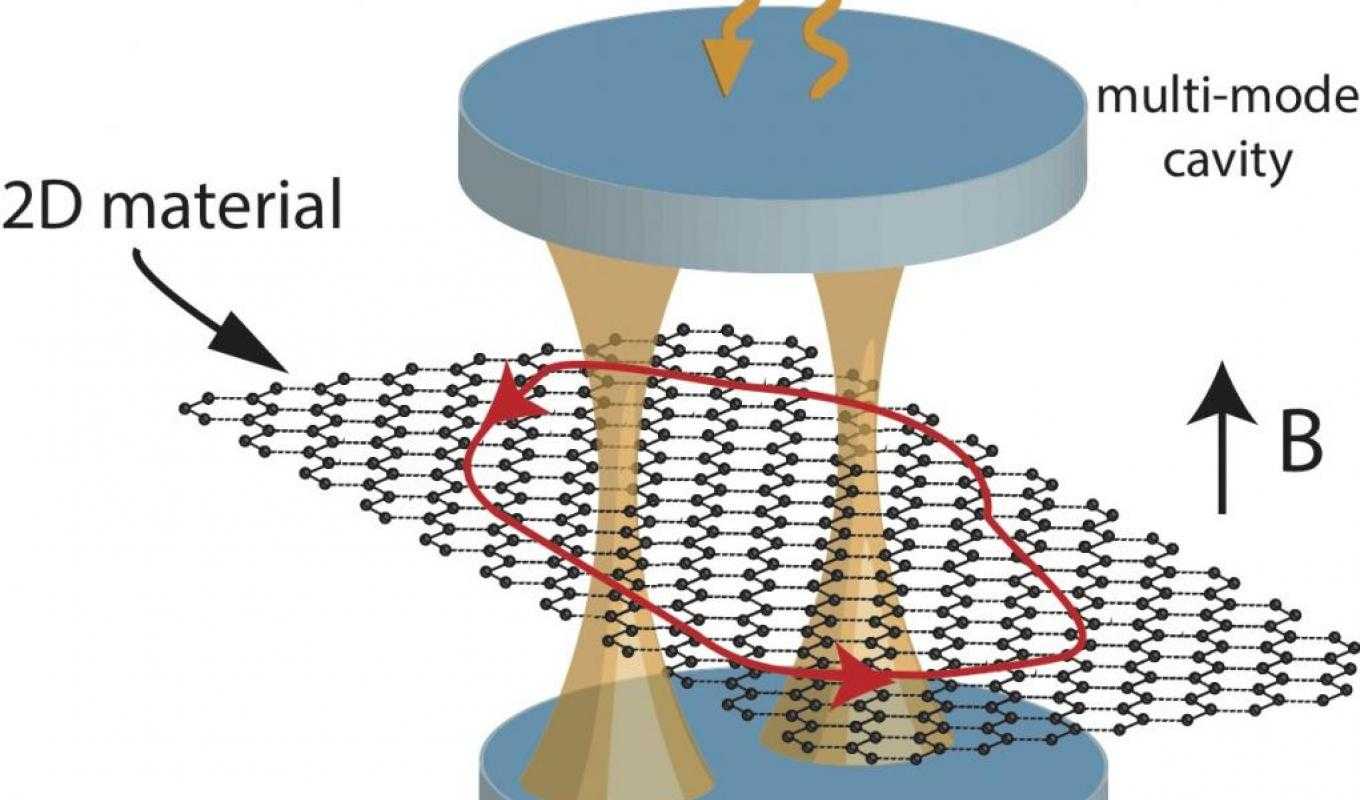Quantum optics meets correlated electrons

One of the key challenges in the development of quantum technologies is the control of light-matter interaction at the quantum level where individual excitations matter. During the past couple of decades, there has been tremendous progress in controlling individual photons and other excitations such as spin, excitonic, phononic in solid-state systems. Such efforts have been motivated to develop quantum technologies such as quantum memories, quantum transducers, quantum networks, and quantum sensing. While these efforts have been mainly focused on control and manipulation of individual excitations (i.e., single-particle physics), both desired and undesired many-body effects have become important. Therefore, it is intriguing to explore whether these quantum optical control techniques could pave a radically new way to prepare, manipulate, and detect non-local and correlated electronic states, such as topological ones.
To learn more see this recent Nature Perspective.
Relevant Publications:
Giant enhancement of exciton diffusion near an electronic Mott insulator P. Upadhyay, D. G. Suarez-Forero, T. Huang, M. Jalali Mehrabad, B. Gao, S. Sarkar, D. Session, K. Watanabe, T. Taniguchi, Y. Zhou, M. Knap, and M. Hafezi, Science 391, 394 (2026) 2409.18357v1_Giant.pdf
Diagnosing electronic phases of matter using photonic correlation functions G. Nambiar, A. Grankin, and M. Hafezi, PRX (2025) 2410.24215v1.pdf
Optical pumping of electronic quantum Hall states with vortex light D. Session, M. Jalali Mehrabad, N. Paithankar, T. Grass, C. J. Eckhardt, B. Cao, D. G. Suárez Forero, K. Li, M. S. Alam, K. Watanabe, T. Taniguchi, G. S. Solomon, N. Schine, J. Sau, R. Sordan & M. Hafezi, Nature Photonics Nature Photonics 19, 156 (2025)
Excitonic Mott insulator in a Bose-Fermi-Hubbard system of moiré WS2/WSe2 heterobilayer B. Gao, D. G. Suarez-Forero, S. Sarkar, T. Huang, D. Session, M. Jalali Mehrabad, R. Ni, M. Xie, J. Vannucci, S. Mittal, K. Watanabe, T. Taniguchi, A. Imamoglu, Y. Zhou, and M. Hafezi, Nature Communications, 15, (2024)excitonc-mott-insulator-with-supp-mat.pdf
Spin-selective strong light-matter coupling in a 2D hole gas-microcavity system, D. Suarez-Forero, D. Session, J. Mehrabad, P. Knuppel, S. Faelt, W. Wegscheider, and M. Hafezi, Nature Photonics, 17, 912-916 (2023) Supplemental materials here.
Optical flux pump in the quantum Hall regime, B. Cao, T. Grass, G. Solomon, and M. Hafezi , Phys. Rev. B, 103, L241301 (2021)
Light-induced topological superconductivity via Floquet interaction engineering, H. Dehghani, M. Hafezi, and P. Ghaemi , PHYSICAL REVIEW RESEARCH, 3, 023039 (2021)
Cavity Quantum Eliashberg Enhancement of Superconductivity, J. B. Curtis, Z. M. Raines, A. A. Allocca, M. Hafezi, and V. M. Galitski , Phys. Rev. Lett., 122 , 167002 (2019)
Enhancement of superconductivity with external phonon squeezing, A. Grankin, M. Hafezi, and V. M. Galitski , PhysRevB.104.L220503 (2020)
Optical enhancement of superconductivity via targeted destruction of charge density waves, H. Dehghani, Z. M. Raines, V. M. Galitski, and M. Hafezi , Phys. Rev. B, 101, 224506 (2020)
Light-induced fractional quantum Hall phases in graphene, A. Ghazaryan, T. Grass, M. J. Gullans, P. Ghaemi, and M. Hafezi , Physical Review Letters, 119, 247403 (2017)